You’d think having to sit shoulder to shoulder 30,000 to 40,000 feet (9,144 meters to 12,192 meters) in the sky and going 575-600 mph (925-965 km/h) would make people more cooperative. After all, it’s not like they can just leave if things get unpleasant. Yet we often find ways to get on each other’s nerves.
A week ago, Reddit user Leather_Ad_5602 submitted a story to the platform’s ‘Petty Revenge’ community about just that. In it, the man explained how he and a fellow passenger got into a silent (but at the same time, very loud) disagreement over the space between them.
This airline passenger felt like his neighbor was wrongfully occupying too much space
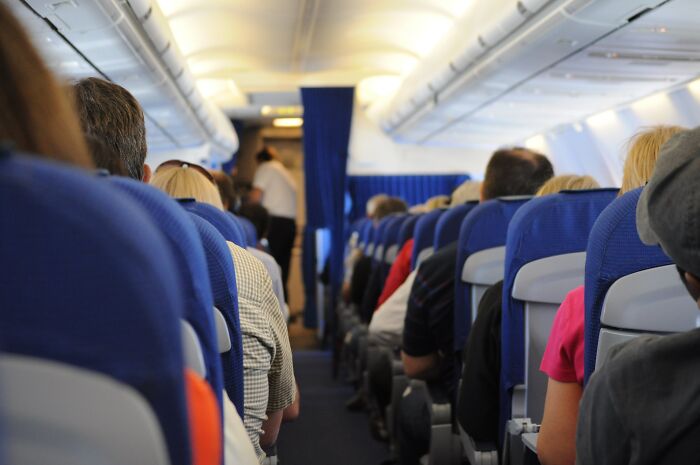
So he decided to retaliate
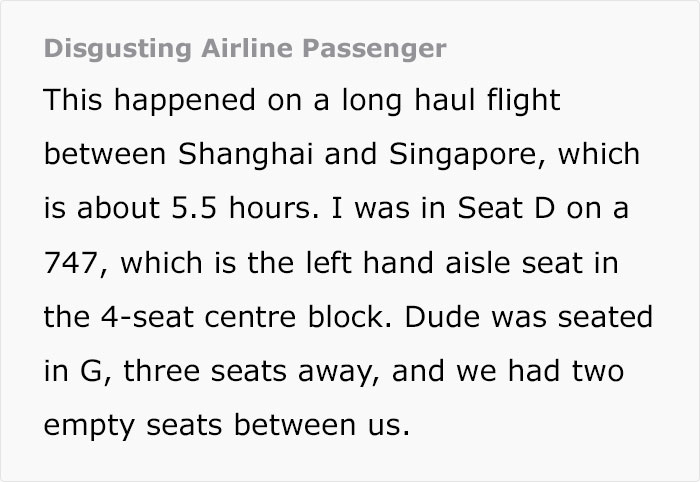
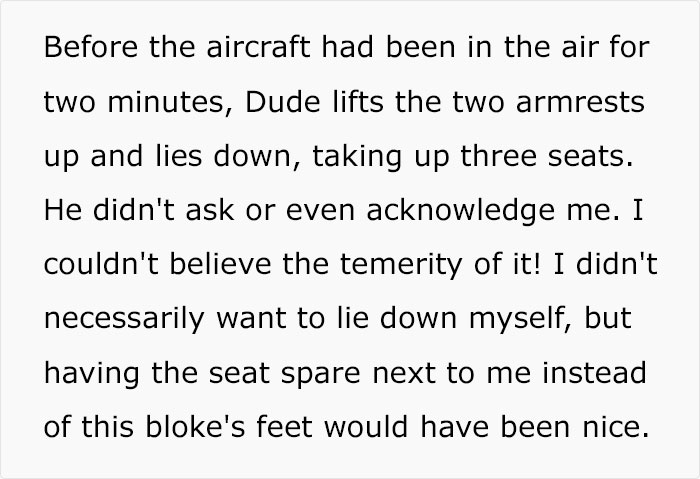


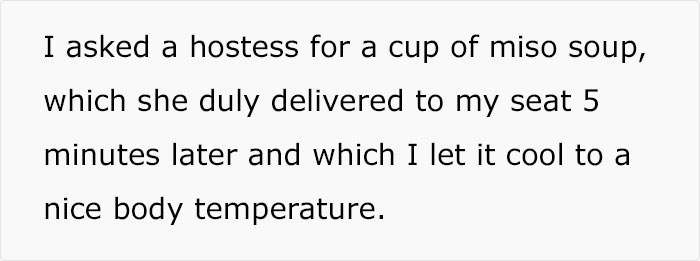
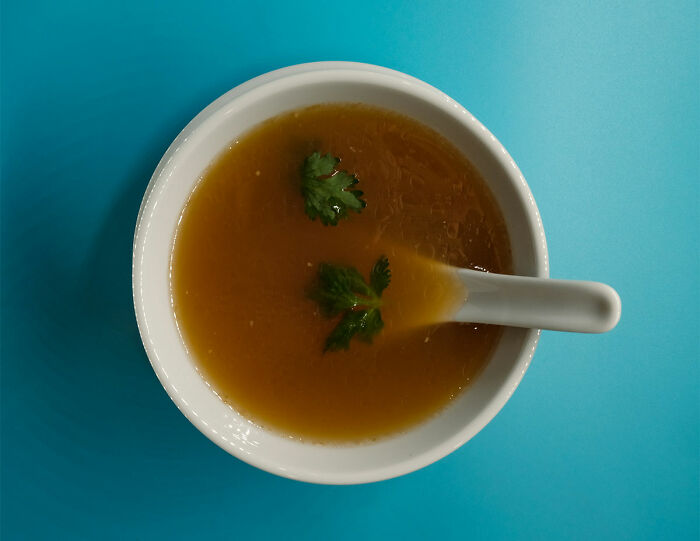
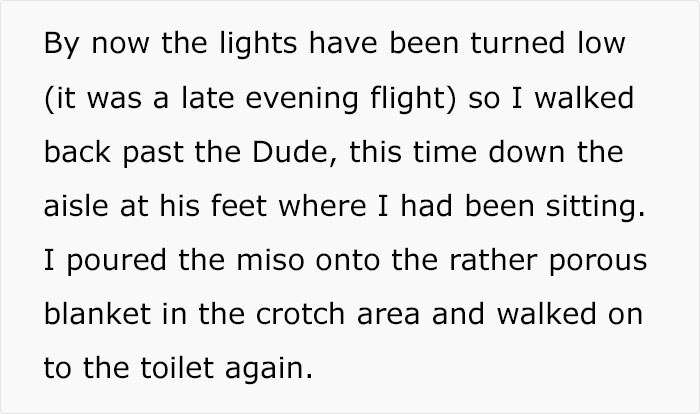



Travelers find many ways to annoy each other in the air
Skyscanner, a travel search engine company, commissioned a survey to determine which behaviors irked passengers the most when flying, and after 2,000 people responded, seven things stood out from the rest:
- asking another passenger to switch seats with you (31%);
- using both armrests of your seat (31%);
- reclining your seat — and not just during meal service (31%);
- taking your shoes or socks off on a flight (35%);
- talking to other passengers or being a chatty seatmate (39%);
- putting your phone on speaker when you’re on a call (42%);
- clipping your nails on a flight (42%).
The sad part is that major airlines are once again reporting a rise in emotional meltdowns and people otherwise losing it on airplanes. For example, Dutch carrier KLM has seen a 100 percent increase in unruly passenger numbers compared to 2019, the world’s oldest airline reported in December 2023.
At the same time on the other side of the globe, Air New Zealand noticed a “concerning trend” in disorderly and abusive passenger conduct, with nearly 200 reports per month, up from 572 reported incidents for the whole of 2019.
In June, the International Air Transport Association (IATA) reported a global increase in unruly passenger incident reports, from one incident per 835 flights in 2021 to one in 568 flights in 2022.
“While it’s true that only a tiny minority of the 4.3 billion passengers that travel by air each year (pre-COVID-19 pandemic) become unruly, they have a disproportionate impact” on the safety of other passengers and crew, the IATA stated.
One study, ‘Flying the not-so-friendly skies,’ by a University of Texas at Dallas team published in July in the journal Deviant Behavior — a review of more than 915 unruly incidents reported over a 21-year span — found offenses ranged from minor arguments to physical assault. (The authors purposely excluded reports during the early COVID years because most of the increase then was related to mask-wearing, and that would have skewed the data, they said.)
Physical misconduct included punching, hitting, slapping, grabbing, and pushing, while verbal misbehavior included name-calling, yelling, swearing, and threatening. Flight attendants, most of whom are women, usually bear the brunt.
Other delinquencies were failing to follow crew members’ commands (being seated, turning off personal electronic devices, stowing luggage, keeping pets in their carriers, and not smoking in the lavatory or drinking personal alcohol).
Generally, it’s the booze. In fact, alcohol has long been the leading “precipitating factor” for unruly actions, and, consequently, aircraft diversions, the authors reported, “largely because of its accessibility both within airports and on airplanes.”
But, as it was in this story, the loss of personal space is also a common trigger; cramped cabins, where every inch becomes highly valuable, open the door to potential conflicts even between people who would otherwise have no problem with each other.
So while every situation is different, it’s in everyone’s best interest that we find common ground in the sky.
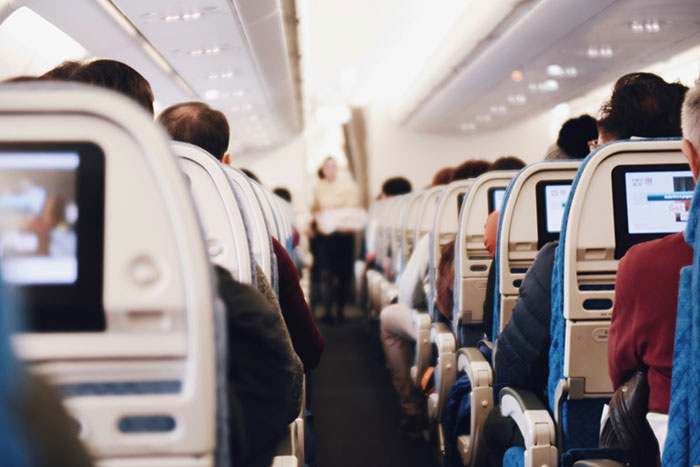
Image credits: Suhyeon Choi (not the actual photo)
As the story went viral, people began sharing their own similar experiences
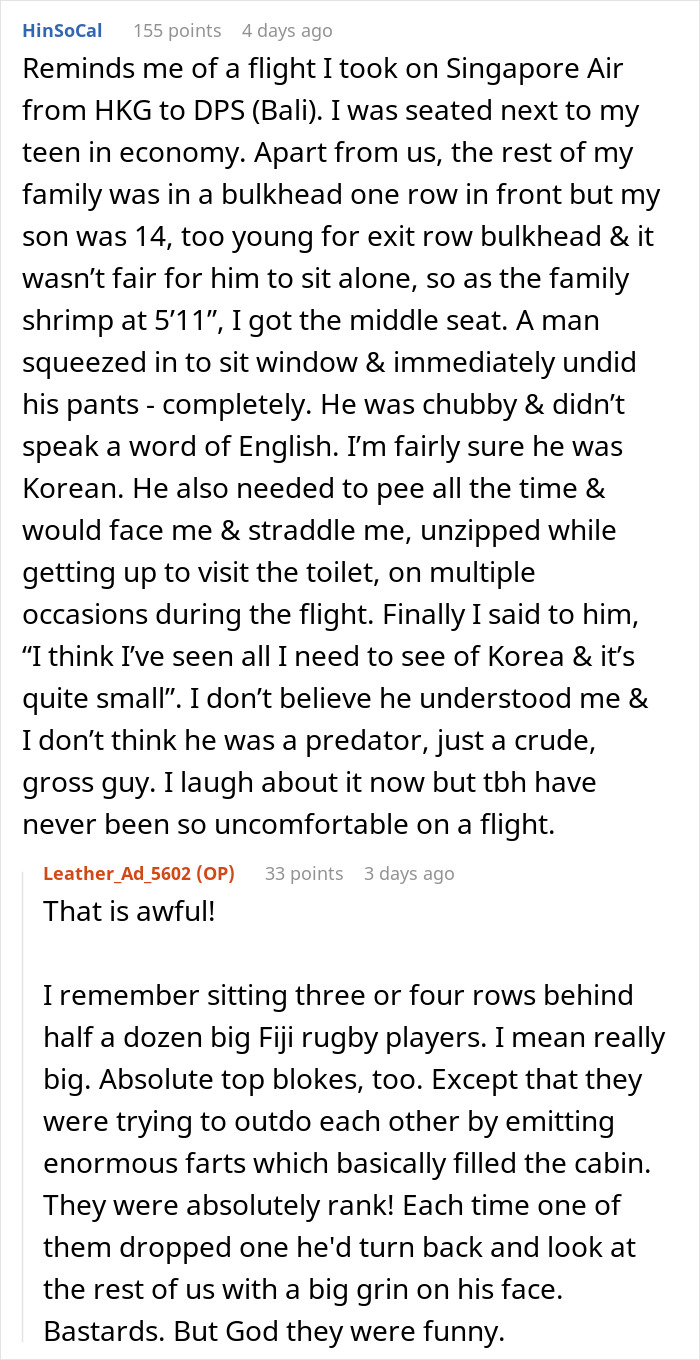

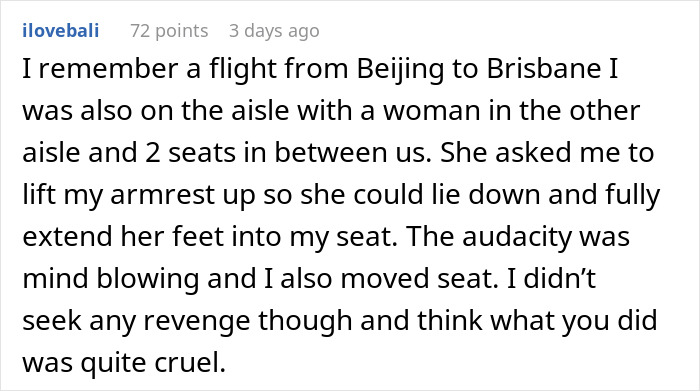
But some thought that the author of the post had gone too far

















